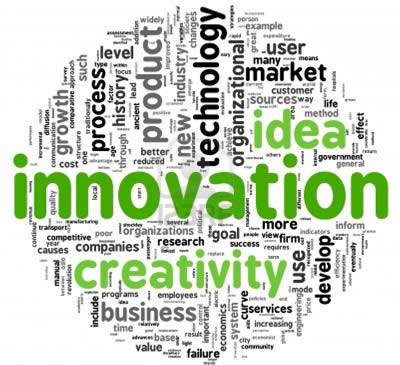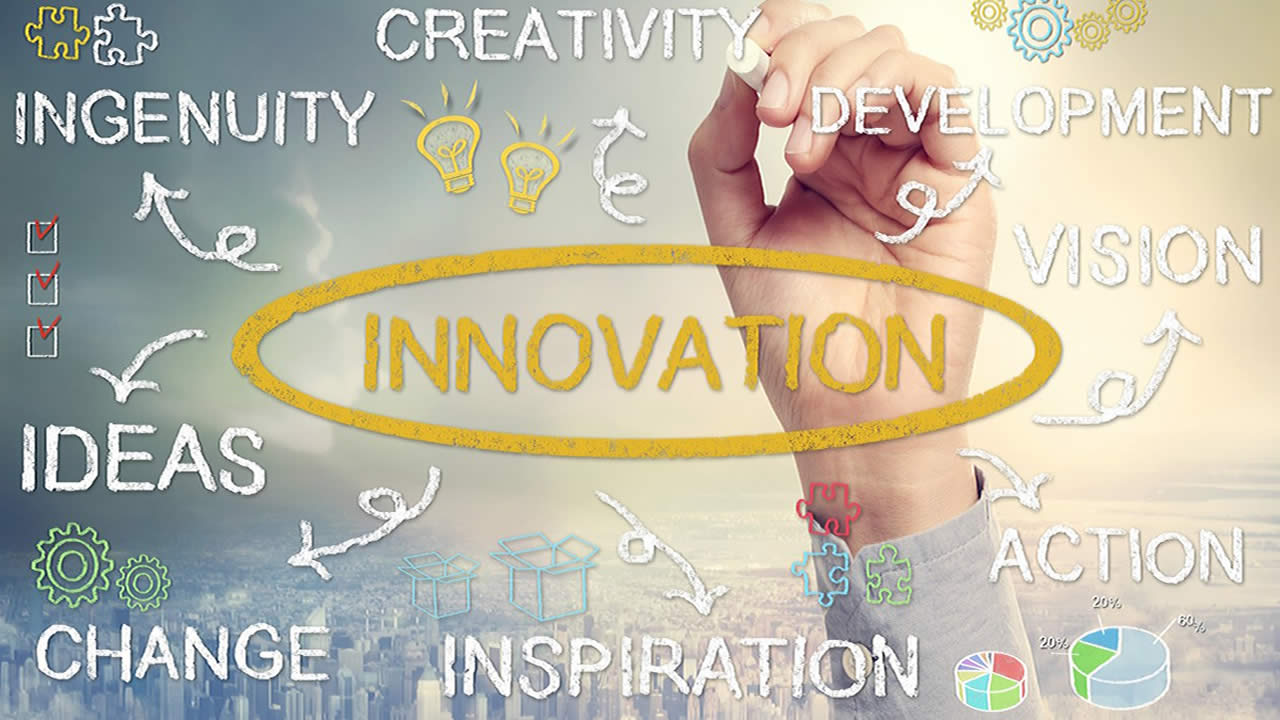
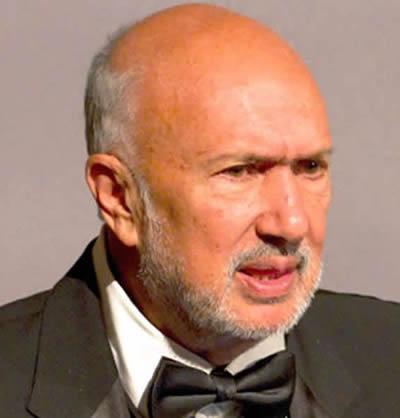
Automated homes, cashless buses, green buildings, blockchains, robotics are just a few innovations that have been rendering life easier and contributing to a prosperous economy. For centuries now, economic thinkers have worked on formulas to hoist emerging countries to a more thriving level through modernisation. In Mauritius, the Mauritius Research Council (MRC) has come forward with a scheme grant to promote innovation. Where do we stand in promoting a culture of innovation in various fields?
Often misconstrued as a concept, innovation drives economic growth. Organisation for Economic Co-operation and Development (OECD) clearly underlines that innovation can make a difference in addressing urgent developmental challenges such as providing access to drinking water, eradicating neglected diseases or reducing hunger. Mauritius is currently ranked among the three highest performing economies in Africa in the Global Innovation Index. Globally we are ranked 75th out of 126 countries, according to the Global Innovation Index 2018/19.
Dr Arjoon Suddhoo, Executive director of MRC, explains that we talk about innovation but many people do not really understand such a concept. “In simple terms, innovation is something new, it can be a product or services. It is also a new way of thinking. It is important to know what innovation will bring to our country. The country can even progress more though innovation. It is more than just science and technology. It is also a frame of mind.”
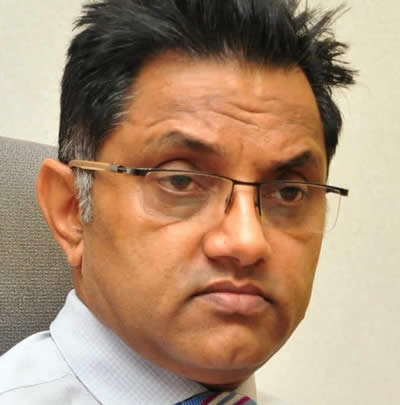
He finds it important for the private sector and academia to work together and innovate. “The Mauritius Research Council is becoming Mauritius Research and Innovation Council (MRIC). We are promoting innovations. We can say we are not lagging behind but there is always room for improvement.”
He believes that innovation can be driven by the private sector. “We are encouraging the private sector to come forward with their proposals. If the proposals are good, half of the funding will be provided.”
Sanjay Mungur, Chief Executive Officer of Empretec Mauritius, avers that innovation is important in all fields and services. Unfortunately, he says that Mauritius is far away from the level expected. “Innovation is all about a mindset. The speed at which we are adopting innovation is very crucial. For instance, today Mauritius does not figure in top 15 in the Fintech field. There is need for us to create the eco system needed to promote innovation.”
Dr Michael Atchia, Chairman of MRC, argues that Mauritius is already on the pathway for innovation. He states that the mindset of the people should change.
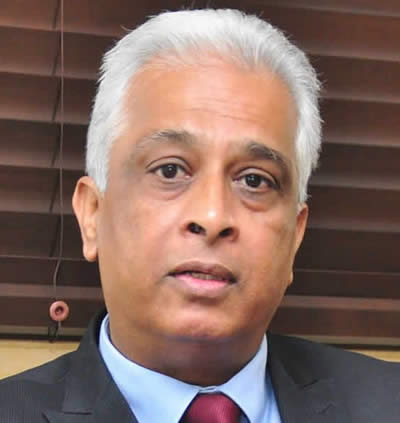
For instance, he advocates that research can be done in cancer, whether a solution is found or not is not necessary; what is important is one step ahead has been taken. “In Mauritius, we have a body in the name of MRC that is very much active and has lots of projects which are bringing results. I will advise our professionals to take some time, one hour per week where they can conduct research and improve on something in any field.”
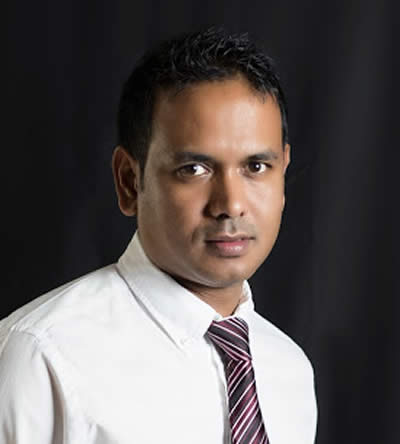
ICT/BPO/Telecommunications: Still at the dawn
Mauritius has made significant progress in the field of ICT/BPO and Telecommunications over the past decade, highlights Rajiv Seeras, Managing Director of Mindshift.mu. Nevertheless, for him, we are still at the dawn of this promising journey to make Mauritius one of the most responsive and earliest adopters of disruptive technologies in the world. “ICT and Telecommunications play fundamental roles for a country’s economic progress in this increasingly inter-connected world. Regardless of industries, innovation, today, lies at the heart of service delivery, to mention a few – healthcare, financial industries. We can learn and adopt strategies from innovation leaders such as South Korea and Sweden who have shown remarkable progress in the field of innovation.”
With the advent of Internet of Things to the rapid proliferation of Artificial Intelligence technologies in diverse industries, the main area of focus needs to be where the impact of those disruptive technologies will be most significant and profound, says the managing director. “Artificial Intelligence is intensely changing the landscape for many industries. The areas of innovation should be centered on technologies of the next decade. Those technologies include blockchain technology, big data, immersive media (Virtual Reality, Augmented Reality, Mixed Reality), 3D printing, EnergyTech and many more.”
The main question is how to promote innovation in Mauritius? To this pertinent question, the IT expert replies: “To turn Mauritius into a bustling innovation hub, we need to invest heavily in state-funded research institutes while shifting focus to high industry technologies and knowledge based technologies.” For the latter, the role of the private sector is crucial to drive innovation in Mauritius as Research and Development carries significant associated costs. “Mauritius has a great pool of IT professionals that join the job market every year and this is where state-funded research institutes and Research and Development programmes can help to mould the new generation into a competitive and agile workforce. The need to invest in a high-quality education system is of extreme importance if we want to ride over the wave of technological disruption in the decade to come.”
He believes that it is paramount to align our long term goals with an agile workforce as the competition worldwide is becoming increasingly fierce. “In parallel, we need to be open for collaborations with the world’s leading research institutions, as we cannot depend solely on our resources to promote innovation. It is only a combined effort of the private sector and the Government that can help to implement a long term plan to make innovation a reality in Mauritius.”
Multi-pronged approach by MRC
There is a need to promote an Innovation Culture in all spheres of society. In this context, MRC has initiated a number of projects in the Emerging Sector field. Some examples are:
- Satellite Technology – this involves the use of small and affordable satellite systems usually equipped with small payload for capacity building, research work and also solving specific problems. The MRC, in consultation with key local stakeholders, has designed and submitted a proposal for building and launching of a CubeSAT under the UNOOSA/JAXA KiboCUBE programme in March 2018.
- Flood modelling and CFD of high rise buildings in cycloning conditions – The MRC has developed computational Models to accurately predict and provide solutions for flood events in various regions of Mauritius. Work is ongoing to scale the project on a national level.
Additionally, some of MRC’s initiatives to promote and encourage innovation are as follows:
- Robotics: The MRC in collaboration with Indian experts has trained some 1,000 students aged between 11 and 25 on two main tools used in Robotics. These are Raspberry Pi and Arduino. These students were gifted with a kit for them to experiment on their own using online training courses provided.
- NSIS: The NSIS, through the Accredited Business Incubators, provides a structured approach aiming at developing/nurturing and advising innovative ideas/businesses/concepts. This public private partnership envisages to mitigate the high risks associated with innovative business development for Mauritius. Thus the NSIS contributes to the consolidation of the Entrepreneurial ecosystem in Mauritius with the ultimate goal to increase creation of successful and innovative business led by Mauritians.
- Reinforcing the role of Intellectual Property (IP) and Innovation in the ICT Sector: With a view to encouraging innovation and further use of IP for the protection and exploitation of innovative technology, the MRC is strengthening the links between research, innovation, IP and components of the knowledge economy.
Innovation schemes
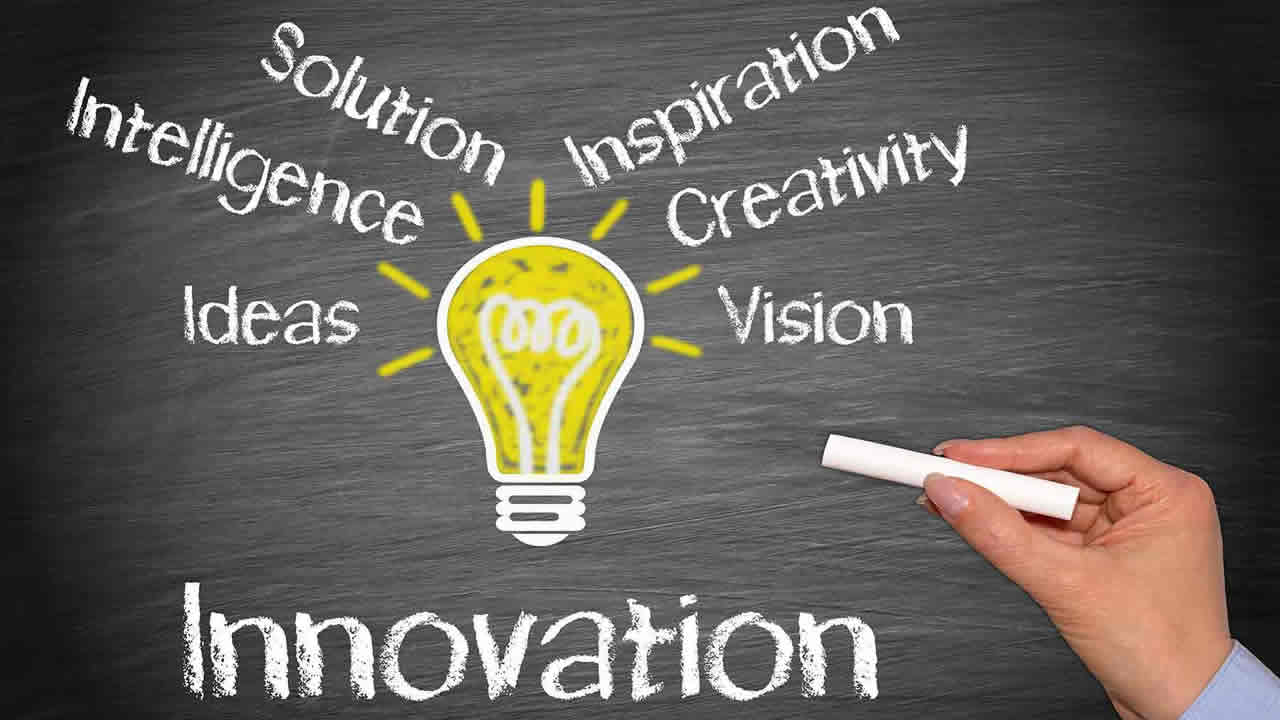
As an apex body to promote and coordinate national investment in research and innovation and as per the mandate of the MRC, the organization is accepting proposals for its following research and innovation schemes:
- Collaborative Research and Innovation Grant Scheme (CRIGS)
- Proof of Concept Scheme (PCS)
- Research and Innovation Bridges
- Pole of Innovation Grant Scheme (PoIGS)
- Intellectual Property Promotion Scheme (IPPS)
- National SME Incubator Scheme (NSIS)
- Social Innovation Research Grant Scheme (SIRGS)
Recently, the Pole of Innovation Grant Scheme (PoIGS) was launched with a maximum grant allocated to successful applicants at Rs 9 M per pole. The main areas include: Renewable Energy, Ocean/Marine Technology, Resources and Services, ICT/BPO/Telecommunications (including High Performance Computing and Cloud Computing), Life Sciences (including Health, Medical, Pharmaceutical and Biotechnology), Manufacturing and Food Processing, Social Sciences and Sustainable Tourism.
As per the MRC, these areas have been chosen keeping view of the national priorities and to provide strategic directions for research and innovation. Ultimately, through funding, research and innovation projects in above areas, the MRC is aiming at commercialization of research outputs with a view to enhancing job creation and wealth generation in the country. The social dimensions of innovation have also been given their due significance as the Council firmly believes in the promotion and adoption of innovative practices to address enduring social problems by using new approaches. It is highly believed that these sectors will help Mauritius to leapfrog from a middle income to a high income innovation driven economy.
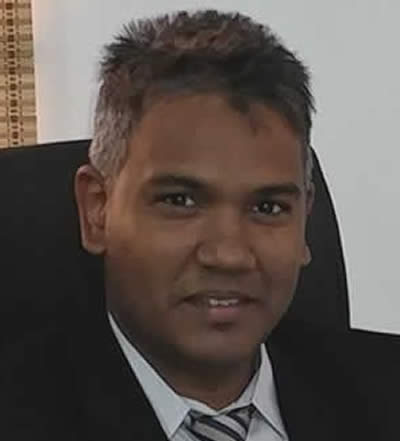
Ocean/Marine Technology, Resources and Services : Research and Development needed
Lecturer at the University of Mauritius, Nadeem Nazurally argues that the Ocean Economy had a very slow start but right now with the development around, we can say the Ocean Economy is on rail track, such as the various port services, aquaculture industries as well as the tourism sectors. “Marine Technology has a high price tag. It costs a lot to acquire high-end technologies for the development of the ocean sectors. I feel it will take a while before we develop the ocean economy at full scale in the Mauritian context.”
So far, Mauritius has not innovated in this field, underlines the lecturer. “We should in fact promote research in this field. But again, research in this field is extremely expensive in terms of new technologies to go beyond what we have been doing in the past. We should innovate in terms of the tourism sector as well, the solution to the increasing number of tourists in Mauritius is not in building more hotels. With the rising local population and the decreasing number of public beaches, there will indeed be conflicts. People are also aware of the negative impacts of mass tourism.”
When asked how can we promote innovation is this field, he enumerates the following: Research and Development and capacity building in this sector, as we have noticed that as it is completely new for people, they tend to be reluctant to venture into the ocean economy.
Renewable Energy : Mauritius playing a negligible role

Khalil Elahee, Associate Professor at the University of Mauritius, argues that renewable energy is booming, driven by innovation in many countries such as India, which is expecting to invest $160 billion in the next five years. “Even the energy efficiency sector, closely related to renewables, is worldwide estimated at no less than $300 billion yearly. Obviously, Africa, including Mauritius, plays a negligible role if we consider the number of patents or of peer-reviewed publications related to renewable energy innovation.”
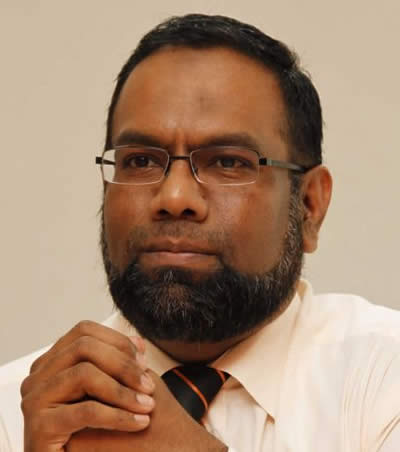
He advocates that in this field, we must work with international partners as we do not have the means, financially, technologically and otherwise. “It is important to note that in the past, we used to lead, for instance, through the pioneering work of the former MSIRI in the production of bioethanol from sugar cane. Even the cogeneration process using bagasse is an outstanding achievement, as we still have the greatest power plant of the sort in the world. The concept of a flexi factory or a bio refinery for the cane industry is another innovative concept that we need to develop further and share with the world. More recently, we have had the Deep Ocean Water Air-Conditioning project, which is a challenge by virtue of its size. Otherwise in areas of solar, wind, and wave energy, huge investments and significant know-how are needed. The learning curves there are very fast though and we stand a chance if there is business interest.”
Despite having institutions like MRC and Rajiv Gandhi Science Centre, we still have a long way to go, opines the Associate Professor. “Creativity is not embedded in our education system. We see the consequence of this at University level where students have to struggle from do away with spoon-feeding attitude acquired very early in their schooling. In Mauritius, we must also promote out-of-classroom activities and encourage the youth to show ingenuity in engaging in project-type work from an early age. Relating to the local context, for instance knowing and experiencing the real impacts of use of fossil fuels on environment and on health, must prompt young people to use their brains and think out of the box to solve local problems.”
He underlines that the fragmentation of knowledge is a key problem everywhere. He advises that we must not ask students to choose between Physics and Biology or between Sciences and Arts when they are too young. “Integration of knowledge is essential to achieve creativity and innovation. Science is beauty and vice-versa. The Indian founders of Mathematics expressed their theorems in poetry. The greatest geniuses like da Vinci excelled in different fields. So did great scientists like Avicenna and Al Biruni. Today, the need to satisfy business imperatives of productivity and profitability may be also killing our innovative instincts. Necessity used to be called the mother of invention, but greed is now its father. Who cares about the real needs of the people? This is the reason why only a fraction of all the research money is spent on renewables compared to what goes into weapons, for instance.”
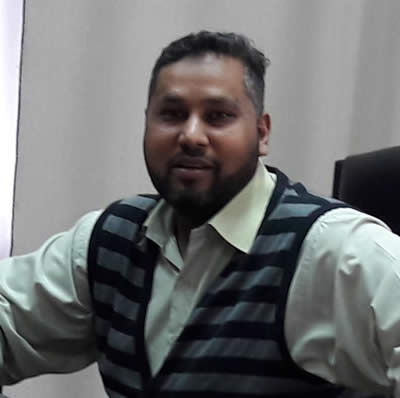
Life Sciences : Review the current investment practices
Associate Professor in Department of Health Sciences; Faculty of Science at University of Mauritius Dr Fawzi Mahomoodally explains that life sciences in broad term is far-reaching, encompassing a panoply of fields such as pharmaceutical and medical sciences, biomedical and biotechnology, and nutritional sciences, amongst others. Globally, it is increasingly being acknowledged that the life sciences sector is very promising and has the full potential to contribute to the establishment of a regional knowledge economy, offering opportunities for regional development, competitiveness and employment through bio-innovation, he says. Talking about the current status in Mauritius, he underlines that during the past few years, the life sciences sector in Mauritius has gained much momentum, with ample willingness seen from stakeholders trying to foster and promote bio-innovations at several strata englobing both private and public institutions as active players. “However, if one wants to benchmark Mauritius on the international arena, we still have a lot to aim and achieve in this respect.”
Concerning the innovations, we should promote in this field, he recalls that Mauritius, though limited in natural resources, has showed much resilience in several sectors and can still set the stage and play a leading role in bio-innovations such as medical innovations in Africa in the years to come. “Mauritius can play a key role via the development of life science products such as pharmaceuticals, biomedicine, biologicals and biotechnological systems. However, Mauritius needs to seriously further explore and probe into the notion of bio-entrepreneurship and empower potential innovators to capitalise on existing bio-resources. One bio-innovation avenue that could be explored is our biodiversity that has the inherent potential to be turned into “green gold” and commercial assets. With such a rich and unique terrestrial and marine biodiversity, Mauritius could become the first hub and platform for BioProduct development in Africa. This hub could offer services for drug development from plants as well as the production of innovative BioProducts such as BioCosmeticals, Bionutraceuticals and BioPharmaceuticals.”
He believes that Mauritius has to foster an innovation culture, revisit existing strategies and policies so as in the decades to come, our institutions could attract direct foreign investment in this sector and play leading roles in bio-innovation. “It is high time for Mauritius to review the current investment practices in the life sciences sector and devise a comprehensive strategic plan, as adopted in some countries that aim to capture investment in this sector. For instance, many countries have already capitalized on life sciences innovations, which have resulted into significant improvement in clinical outcomes, being a new promising avenue bringing a significant source of income.”
He utters that we have to admit that innovations, irrespective of any field, will not occur overnight. “Institutions have to work collectively to overcome challenges. One of the main challenges still lies in the educational system where life sciences as an academic subject is still not attracting future young innovators. It is also of paramount importance that future life-sciences innovation endeavours involve sustainable public-private partnerships to collaborate synergistically. However, success in bio-innovation will only be achieved when policy makers and institutions understand that life sciences innovation is not only necessary for the society, but is capable of becoming an attractive foundation for ambitious businesses and hence turn into a valuable bio-economic asset for Mauritians.”
 J'aime
J'aime








